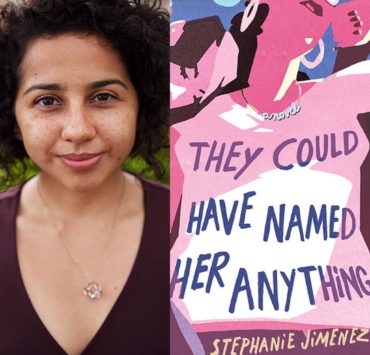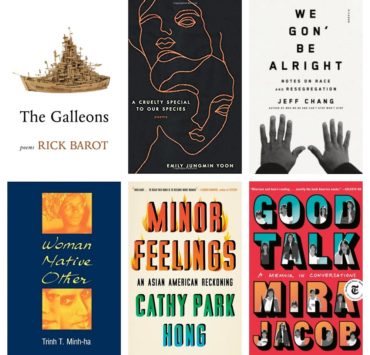
When I “discovered” Alice Bag, as an adult, I already knew her work. Since high school, I had the classic live LP of the film Decline of the Western Civilization, Part I. But back then I had focused on the bands with white male frontmen, instead of focusing on the woman who would ultimately inspire.
In a recent Instagram post, Alicia Armendariz, AKA Alice Bag, mentioned she didn’t fully understand the concept of erasure until she was interviewed for punk anthologies. Instead of asking Bag about her pioneering role in punk and hardcore, the inimitable singer/songwriter was asked to talk about her male counterparts in the industry. Every. Time.
Decades after buying the album in a secondhand store, I listened to Alice Bag’s recordings and read her books. Her innovative leadership inspired me to write “Punks and Hipsters: Latina Outsiders in Literature and Media,” which I presented at the City University of New York Latinx Colloquium, and which ultimately became the cornerstone of the anthology. In it, I discuss how race, gender identity and sexuality, and ideology contribute to being an outsider anywhere, including within Latinx culture. Through it, I was surprised to find other outsiders.
Here are some artistic works by “Latina Outsiders” who are Remaking Latina Identity that are featured in my anthology.
- Nancy Mercado: “Catcalls to the Brain”
In this poem Mercado discusses the erasure of her intelligence and accomplishments in academic circles. She recalls the catcalls that existed in El Barrio and how she experiences a similar sexism within academia which is, albeit, subtle but holds the same meaning: you are not valued. In discussing her poem, she and I agreed that disparaging remarks to Latinas in academia serve to remind us that we are seen as maids or mistresses, and our intellectual contributions will be ignored.
- Marina Gutierrez: “Helio-Chronometer/Inti-Hautana”
The public sculpture by the NYC-based visual artist is described by Gutierrez as “Part time piece, part sculpture and part shadow pictograph, the chronometer marks the passage of natural/scientific time. It’s intricate network of cables and linear arcs trace and measure the transit of shadow cast by a central indicator pole (or gnomon).” The work is a collage of imagery and concepts that draw from Andean, Mexican, NYC Hip Hop, Chinese, Egyptian, and Puerto Rican cultures, even including the image of the infamous coqui. Inter-continental timekeeping created by a woman who sees unity as power.
3. Carmen Giménez Smith: “Parts of an Autobiography”
Giménez Smith never shies away from the complex and in this poem the focus she explores the liberatory, confining, frustrating, and elating aspects of feminism and female relationships. Part inquisitive exploration of what a woman is, part manifesto demanding we give women more space/possibility/recognition, reading the poem is dizzying and entirely worth it. The book version has continuous lines, but the online version has hyperlinks, adding to the journey.
4. Cathryn Merla-Watson: Article on Laura Varela’s Enlight Tent exhibit
The article, titled “Haciendo Caras: The Alter-Native Illuminations of Laura Varela and Vaago
Weiland’s Enlight-Tent,” draws on Alicia Gaspar de Alba’s “notion of the alter-Native” and how colonial pasts continue to inform and affect the present. Specifically, she looks at Varela’s stunning exhibit which placed lighted tents in front of the Alamo, while projecting images of brown folks. Not only does the imagery subvert the mythology of the Alamo, but it also subverts Latinx culture’s absorption of indigenous peoples via Christianity. Merla-Watson discusses her work in this interview.
5. Kristen Millares-Young: “Every woman keeps a flame against the wind.”
When I met Millares-Young, I didn’t see an outsider. She seemed exactly like the kind of Latina who made people feel comfortable. As soon as we began to have a conversation, however, I understood why the call for contributors interested her: she is a woman who resents what people assume her exterior, and her culture, implies, and this essay speaks to that underestimation and lazy thinking. It is also an indictment of the state of journalism and its lack of racial and gender diversity, all in an experimental format that exhilarates.

The paperback version of Latina Outsiders Remaking Latina Identity was released by Routledge in December 2020 by Routledge and is available for purchase here.
Image Credits: Lee Varis
Dr. Grisel Y. Acosta is an associate professor at the City University of New York-BCC. Her first book of poetry, THINGS TO PACK ON THE WAY to Everywhere, is an Andrés Montoya Poetry Prize finalist and it is forthcoming from Get Fresh Books in 2021. She is the editor of Latina Outsiders Remaking Latina Identity (Routledge, 2019), an anthology that features over Latinx 30 contributors and subjects. Recent work can be found in Best American Poetry, The Baffler, Acentos Journal, Kweli Journal, Red Fez, Gathering of the Tribes Magazine, In Full Color, Paterson Literary Review, MiPoesias, Short Plays on Reproductive Freedom, and Celebrating Twenty Years of Black Girlhood: The Lauryn Hill Reader. She is a Geraldine Dodge Foundation Poet and a Macondo Fellow.







